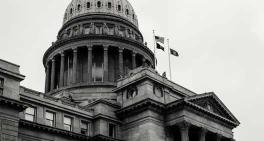Nepal’s Supreme Court reinstates dissolved lower house
Ethics
Nepal’s Supreme Court reinstated the House of Representatives on Monday and upheld the leader of the opposition’s claim to be the new prime minister.
The 167-page court order removes Prime Minister Khadga Prasad Oli, who had been running a caretaker government until planned elections.
In May, Oli directed the president to dissolve the House of Representatives, Parliament’s lower house, and announce new elections later this year. The decision was challenged in the Supreme Court by a coalition of opposition parties that said they had the support of a majority in Parliament to form a new government.
The Supreme Court also ruled Monday that the reinstated House of Representatives should meet within a week, when the leader of the main opposition party, Sher Bahadur Deuba, is expected to call a vote of confidence.
There was no immediate comment from Oli’s office or his aides.
Hundreds of Oli’s supporters gathered outside the Supreme Court to oppose the court decision.
“We are here to protest the unconstitutional decision by the Supreme Court, which was interfering with the affairs of the Parliament and its rights,” said one of the protesters, Ramesh Acharya.
The protesters briefly scuffled with riot police who were able to push them back. There were no injuries or arrests.
More protests are likely later in the week because Oli still has significant support among the public.
It is the second time the Supreme Court has reinstated the House of Representatives this year after it was dissolved by Oli.
He had the House of Representatives dissolved in December and called for new elections in April, but that was rejected by the Supreme Court and the lower house was reinstated in February. Oli again had the president dissolve the House of Representatives in May with elections planned for November.
Oli became prime minister in 2018 after the Communist Party of Nepal won a majority of the seats in the House of Representatives. The party, however, has had two splits this year, weakening Oli’s hold on power.
Related listings
-
Court case to tackle jails' medication-assisted treatment
Ethics 02/12/2019The American Civil Liberties Union of Maine started making its case in federal court on Monday against the ban on medication-assisted treatment in county jail amid the opioid crisis.Democratic Gov. Janet Mills recently lifted the Maine Department of ...
-
Fight over report on Wynn allegations back in court Jan. 4
Ethics 12/21/2018The fight over a Massachusetts Gaming Commission report on allegations of sexual misconduct against former casino mogul Steve Wynn will be back in a Nevada courtroom next month.Clark County District Judge Elizabeth Gonzalez on Thursday set a Jan. 4 c...
-
Nevada high court says execution doctor's name stays secret
Ethics 09/13/2018The name of the physician picked to attend a state inmate's execution can remain secret, even from drug makers suing to ban the use of their products in the twice-postponed lethal injection, the Nevada Supreme Court ruled Monday.In a twist, lawyers f...

New Rochelle, New York Work Accidents Lawyers
It doesn’t matter what type of work you do or where you work, you can always be at risk of injuring yourself at your work no matter how safe you may think it is. Accidents in the workplace are often caused by unsafe work conditions arising from ignoring safety rules, overlooking maintenance or other negligence of those in management. Work accidents can cause serious injuries and sometimes permanent damage. Some extremely serious work injuries can permanently hinder a person’s ability to get around and continue their daily duties.
Factors that affect one’s quality of life like place of work, relationships with friends and family, social standing can all be taken away quickly by a work injury. Although, you may not be able to recover all of your losses, you may be entitled to compensation as a result of your work injury. In order to ensure that you and your loved ones receive the best outcome, make sure you have the help of an experienced New Rochelle, New York workplace injury lawyer you deserve. We can get you on your way to filing a claim against the responsible party. If you have been injured at your place of work it is important to know your options by seeking legal action. Kommer Bave & Ollman LLP offers a free case evaluation where we will answer any questions you may have and explain your legal options. Call us at 914-633-7400 or contact our firm to schedule a free consultation with an experienced attorney.




